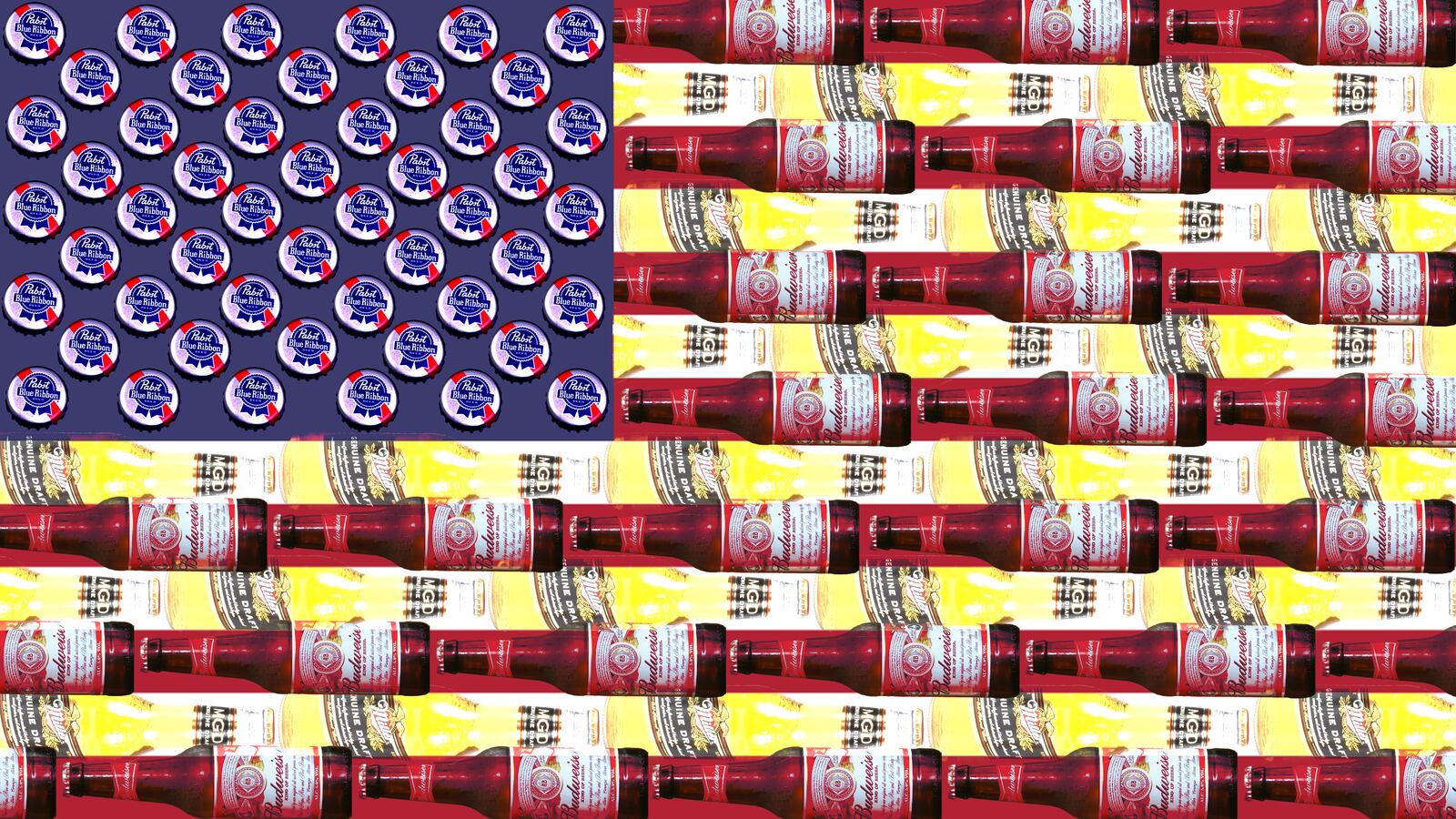“It is time the people know the truth,” read a grave and troubling report from the subcommittee on the judiciary of the U.S. Senate.
That truth? That the United States had been infiltrated by foreign agents, who exerted their influence on national politics and elections. They underwrote propaganda, co-opted reporters, and even financed the acquisition of an entire newspaper published, eerily, in the shadow the U.S. Capitol. This nest of agents “undertakes and sees by these secret methods to control party nominations, party machinery, whole political parties, and thereby control the Government of State and Nation,” the report concluded.
The year was 1919. The transgressors? A dozen to 15 brewers doing the bidding of the German Empire.
The investigation began sometime earlier, when it was brought to the attention of several senators, including Lee Slater Overman (whose name is the literal German translation of the name Übermensch), who represented North Carolina between 1903 and 1930. He created what would be called the Overman Committee to look into allegations that a cadre of German immigrants or their descendants, all linked to brewing, were acting in ways more faithful to the Fatherland than to the United States.
When the investigation started, the Great War had been gradually consuming the European continent, triggered by the June 1914 assassination of Archduke Franz Ferdinand, heir to the throne of the Austro-Hungarian Empire. America had been largely content to watch from the sidelines as foreign powers duked it out. But German ambition grew, and when their submarines started targeting U.S. merchant ships, American reserve shifted to American resolve.
Among those opposed to that resolve, however, were many German-Americans, who happened to be among the most numerous immigrants in the waves of 19th-century arrivals from Europe. (Immigrants from Germany had grown from 1.3 million in 1860 to nearly 3 million in 1890. The 1910 census estimated that one-tenth of America’s population had German roots.) Germans and their progeny also maintained a strong national identity—in 1890, there were more than 1,000 German-language newspapers published in America. An estimated 1,200 German-language social clubs with a membership of 2 million were known to exist, including Sons of Herman, a secret organization likened to the Masonic fraternity.
And much of the beer America drank was made by these German immigrant families. German brewers had brought with them longstanding brewing know-how and traditions (including a preference for lager over ale). Those who had established themselves in the mid-19th century (and often in the Midwest) found themselves beneficiaries of rapid advances in refrigeration and transportation, which abetted the rise of national brands while squeezing out local brewers. Among those who came out on top: Pabst (1844), Schlitz (1849), Anheuser-Busch (1852), Miller (1855), and Coors (1873).
When America finally declared war on Germany in April 1917 (and on Austria-Hungary in December), the loyalty of German-Americans was instantly cast into deep shadow (as would the Japanese after Pearl Harbor, and Muslims after 9/11). In August 1918, the “Alien Property Custodian”—a federal officer—seized the estate of prominent brewer Gottfried Krueger, an 80-year-old who had immigrated from Germany in 1852. Starting as an apprentice brewer, he had eventually amassed ownership of four breweries in Newark, New Jersey. He returned to Germany later in life, and was thus considered an enemy of the state and his property seized.
In September, two other brewers—Christian W. Feigenspan, also of Newark, and George Ehret, of New York—were accused of being active in undermining America by helping finance the purchase of the Washington Times by Arthur Brisbane, a suspected socialist. (“Conspiracy Between Agents of Kaiser and German-American Brewers,” read one alarmist headline.) If Brisbane was a socialist, he wasn’t a very good one; he flipped the paper several years later, selling it to William Hearst, presumably for a tidy profit.
The Senate committee outlined the ways in which “twelve or fifteen” German brewers, in league with the United States Brewers’ Association, had become “a vicious interest because it has been unpatriotic, because it has been pro-German in its sympathies and its conduct.”
Investigators found that brewers had corrupted America politics through sangerfests and sangerbunds and “organizations of that kind,” through which rich brewers taught young immigrants “to remember, first, the fatherland, and second, America.” They made “contributions to political campaigns on a great scale without precedent in the political history of the country,” and they exacted pro-German pledges from candidates in exchange for financial support. They had, the committee noted, “frequently succeeded in controlling primaries, elections, and political organizations.”
German brewers had also recruited and paid authors “of recognized standing in literary circles” to pen articles favoring their positions, and further contributed to fake news by demanding that in exchange for the brewers’ considerable advertising dollars, that newspapers run “literary material... provided from the brewer’s central office in New York.”
Scholars of drink may have noted by now that this effort to contain German brewers arose as America was also ascending the long upslope to Prohibition—ratified in January 1919, less than two years after America declared war on Germany. So, while the U.S. government was assailing German brewers for being seditious, prohibitionists were tarring Huns for their fondness for drink.
“The brutality of the German today is the result of continued beer drinking,” said U.S. Sen. Wesley Jones of Washington, an avowed opponent of drink, at an Anti-Saloon League ratification rally in Illinois in 1918. “The reason for the German frightfulness, in my judgment, can largely be traced to the universal daily beer drinking habit of the German people.”
William Wheeler of the Anti-Saloon League also thundered against the Germans. “There are two kinds of traitors,” he announced, “and the brewers are one of them… Brewers and allied trades put beer before country and liquor before loyalty.”
The degree to which the accusations of unpatriotic actions and secretive influence peddling were based in fact remains largely unknown. As suddenly as the Hun threat arose, it disappeared. The armistice that brought peace to the continent went into effect on Nov. 11, 1918, just two weeks after the committee launched its investigation into machinations of German-American brewers. As such, the committee swiftly lost interest in the German infiltration.
If one ecological niche lacks sufficient nutrients, predators move to more fertile terrain. Which is exactly what the judiciary subcommittee did—pivoting rapidly to focus on the Russians, in particular, the Bolsheviks, who had overthrown its nation’s monarchy the year earlier and were now seen as the more clear and present danger to American security. Archibald Stevenson, a New York attorney working with Overman Committee, swiftly drew up a list of 200 professors in league with the Bolsheviks and intent on corrupting young American minds. Universities were now a center of sedition, Stevenson warned, calling them “festering masses of pure atheism.” (“Festering Mass of Pure Atheism,” it goes without saying, would be an excellent name for a craft beer.)
The spotlight swung from Hun to Slav. By late 1919 a group of 249 anarchists, “undesirables,” and others of dubious “moral turpitude” were rounded and deported from New York to Russia aboard a requisitioned troop transport ship. (Among them was anarchist-writer Emma Goldman, one of three women in the group.)
As the boat sailed east, The New York Times was happy to slam the door behind them, noting the “general American gratification of the departure of these unclean spirits.”
The Overman Committee and its obsessions with German brewers has largely been forgotten, but it claims two footnotes in American history. According to historian Frank J. Donner, it marked the first step in the “federalization of intelligence,” offering a precursor to the Office of Strategic Services and the Central Intelligence Agency. And it was the first congressional committee to look into the influence of communism, a forerunner of the later, better-known House Un-American Activities Committee.
It was among the first time, but not the last, that federal fingers pointed at foreigners to blame for America’s woes, and advance their hidden agendas. As the modern proverb has it, history never repeats itself, but it often rhymes.






